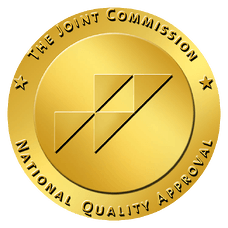How To Get Sober
A Brief Guide on 3 Steps to Get Sober

How to Get Sober: A Guide to Sobriety
Embarking on the path to sobriety is a significant journey requiring determination and dedication. Moving beyond substance misuse entails more than just relinquishing drugs and alcohol; it's a transformative process that demands commitment to a life free from these substances, a journey that may be challenging at times.
The First Crucial Step: Recognizing the Need to Get Sober
Acknowledging and admitting a problem with drug or alcohol misuse is the initial and often most daunting step toward sobriety. While it's not always easy to face this reality, it's a pivotal moment in the journey to recovery. Denial can be powerful, making it tough to admit that control over substance use has been lost. Indicators, outlined by the Diagnostic and Statistical Manual of Mental Disorders, fifth edition (DSM-5), might include using substances longer or more frequently than intended, failed attempts to quit, neglecting responsibilities due to substance use, continuing use despite health issues, and experiencing strong urges to use.
Step 2: Reach Out for Support
Once the recognition of a substance misuse problem has occurred, seeking help is the next imperative step. Sobriety is a collective effort that thrives with a strong support system. Studies by Substance Abuse show that a supportive network can increase the likelihood of successful detox and addiction treatment.
Friends and Family as Pillars of Support
Engaging the aid of friends and family who genuinely care can be a powerful force in your journey to sobriety. It's vital to choose your support circle wisely, ensuring they encourage your recovery. Sometimes, building new, healthy relationships is part of the journey.
Professional Assistance
For those without a supportive home environment, seeking professional guidance is crucial. Medical or addiction treatment experts can offer the necessary direction toward recovery resources, including services tailored to your unique needs.
Step 3: Finding the Right Treatment Program
Tailoring a treatment program to your requirements is crucial since there isn't a one-size-fits-all solution for addiction. Consider factors such as cost, reviews, licensing, amenities, and evidence-based treatments.
Customize Your Journey with Evidence-Based Treatment
Look for programs with a proven track record in terms of successful treatment and sustained sobriety. Programs rooted in evidence-based practices rely on research-backed interventions that deliver positive outcomes.
Matching Treatment to Your Needs
The intensity of treatment varies based on addiction severity. Options include outpatient and inpatient care, determined by the degree of addiction. Healthcare professionals assess your readiness for change to select the most suitable treatment level.
The Key: Readiness for Change
Your willingness to embrace change is pivotal. Treatment equips you with tools to transform thoughts and behaviors surrounding substance use. True recovery lies in being prepared and open to change, safeguarding against relapse, and ensuring lasting progress.
For real-life experiences of those who have faced substance misuse, explore our sobriety stories and gain insights from their journeys. If you or a loved one are ready to take the next step towards recovery, reach out for guidance and support. Your journey to sobriety begins with a single step.






